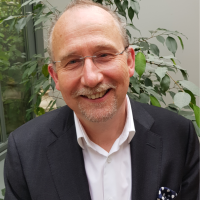Visions of ADHD – disorder, divergence and development - Edmund Sonuga-Barke
Diagnostic rates continue to rise across the world as the needs of hyperkinetic, inattentive and impulsive people, of all ages, and the benefits of treatment, are being increasingly recognised.
NZPsS Members $85, NZPsS Student: $45, Non-members $130
This event will be recorded (the recording will be available for 3 weeks only)
Attention-deficit/hyperactivity disorder remains a contested and controversial concept. Many reject its existence outright while others are seeking its reform in various ways. At the same time diagnostic rates continue to rise across the world as the needs of hyperkinetic, inattentive and impulsive people, of all ages, and the benefits of treatment, are being increasingly recognised.
In this talk I will examine both scientific and ideological challenges to the assumptions that underpin the current disorder paradigm as enshrined in the main diagnostic systems (DSM-5 and ICD-11). I will first discuss the scientific challenges relating to, among other things, dimensionality, heterogeneity, transdiagnostic boundaries, age of onset and cultural-/sex-based invariance. I will then focus on the ideological challenge presented by what has been termed the neurodiversity paradigm – especially its wholesale rejection of the disorder concept and its replacement with the notion of neuro-divergence. Finally, I will describe how adopting these new assumptions can change how we think about, study and treat people with ADHD – shifting our focus from ‘fixing’ neuro-disorder to accepting and supporting divergence to promote successful development.
PRESENTER: EDMUND SONUGA-BARKE (UK)
Professor of Developmental Psychology, Psychiatry and Neuroscience, Kings College London. Honorary Skou Professor, Aarhus University, Denmark. Visiting Research Professor, University of Hong Kong
Edmund is a Developmental Psychologist who studies the causes, course and developmental consequences of ADHD.
Motivated by his own childhood experience of learning difficulties, his work aims to improve the life chances of young people with ADHD. To this end he has developed new ways of thinking about and studying ADHD using experimental developmental neuroscience methods and theories leading to new ways of supporting people with ADHD.
He is an elected Fellow of The Academy of Medical Sciences (2016), The British Academy (2018),The Danish Academy of Honorary Skou Professors (2019) and a Member of the Academia Europea (2023). Edmund has been included in the Clarivate list of “most influential” researchers in Psychology/Psychiatry. He is Editor-in-Chief of The Journal of Child Psychology and Psychiatry.
